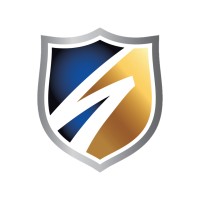
Swift Transportation Company Cyber Security Posture
swifttrans.comSwift Transportation is the largest full-truckload motor carrier in North America. Based in Phoenix, Arizona, the Swift terminal network includes over thirty full-service facilities in the United States and Mexico. Swift provides a full line of service solutions, including linehaul, flatbed, intermodal, refrigerated, dedicated and logistics management. Swift also offers careers in operations, finance, account management, shop mechanics, human resources, payroll, and many more. Swift offers more than just a career - Swift is family. Want to join our team? https://www.swifttrans.com/careers Want to be a Driver? Apply Now! driveswift.com
Swift Transportation Company Details
swift-transportation
10067 employees
57500.0
none
Transportation/Trucking/Railroad
swifttrans.com
Scan still pending
SWI_1435033
In-progress
Between 200 and 800
This score is AI-generated and less favored by cyber insurers, who prefer the TPRM score.
 Swift Transportation Global Score
Swift Transportation Global Score.png)

Swift Transportation Company Scoring based on AI Models
| Model Name | Date | Description | Current Score Difference | Score |
|---|---|---|---|---|
| AVERAGE-Industry | 03-12-2025 | This score represents the average cybersecurity rating of companies already scanned within the same industry. It provides a benchmark to compare an individual company's security posture against its industry peers. | N/A | Between 200 and 800 |
Swift Transportation Company Cyber Security News & History
| Entity | Type | Severity | Impact | Seen | Url ID | Details | View |
|---|
Swift Transportation Company Subsidiaries

Swift Transportation is the largest full-truckload motor carrier in North America. Based in Phoenix, Arizona, the Swift terminal network includes over thirty full-service facilities in the United States and Mexico. Swift provides a full line of service solutions, including linehaul, flatbed, intermodal, refrigerated, dedicated and logistics management. Swift also offers careers in operations, finance, account management, shop mechanics, human resources, payroll, and many more. Swift offers more than just a career - Swift is family. Want to join our team? https://www.swifttrans.com/careers Want to be a Driver? Apply Now! driveswift.com
Access Data Using Our API

Get company history
.png)
Swift Transportation Cyber Security News
Vision and mission
We are a global community of financial institutions. We provide secure financial messaging and support seamless interoperability between our members, their ...
New CISA advisories urge swift action on ICS flaws impacting energy, manufacturing, transportation systems
The U.S. Cybersecurity and Infrastructure Security Agency (CISA) issued new ICS (industrial control systems) advisories on Tuesday, ...
3 Profitable Stocks Walking a Fine Line
Annual revenue growth of 1.2% over the last two years was below our standards for the industrials sector · Free cash flow margin dropped by 9.5 ...
TSA, Canada partner to protect passenger rail
When you hop on board a passenger train, you expect to get to your destination without a hitch, and nearly 100% of the time, that's the case ...
House Committee urges TSA to strengthen cybersecurity framework amid rising threats to transportation infrastructure
House Committee urges TSA to strengthen cybersecurity framework amid rising threats to transportation infrastructure.
Knight-Swift Transportation acquires regional LTL carrier Dependable Highway Express
Knight-Swift Transportation, the No. 3 company on the 2024 FleetOwner 500: For-Hire list recently acquired the regional less-than-truckload ...
London transport cyber attack: Boy, 17, arrested
A 17-year-old boy has been arrested in connection with the cyber security incident affecting Transport for London (TfL), the National Crime ...
Insurance woes weigh down Knight-Swift earnings
Insurance woes weigh down Knight-Swift earnings. Reading tea leaves with Covenant Logistics' Q4 results; evolution of cybersecurity in the ...
Cyber threats to rail, ports, airports could cripple US military mobilization, FDD report warns
“The L2 frequency, used alongside L1, improves GPS accuracy, particularly for military applications, by offering advanced error correction that ...

Swift Transportation Similar Companies
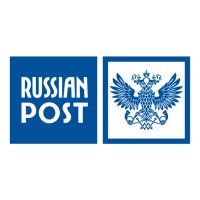
Russian Post
Russian Post is one of the largest internationally operating logistics groups and the national postal service provider of the Russian Federation. We offer a broad and multimodal portfolio of domestic and international e-commerce, parcel shipping and logistics solutions, by road, sea and air. With a
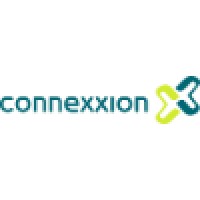
Connexxion
Connexxion wil de beste keuze zijn op het gebied van regionaal personenvervoer in Nederland. Met zorg brengen wij mensen op hun bestemming met toegankelijk, duurzaam en veilig vervoer! Wij willen mobiliteit voor iedereen toegankelijk en beschikbaar houden. Want wij geloven dat mobiliteit essentieel

SBB CFF FFS
We shape the mobility of the future – simple, personal, connected. SBB’s comprehensive service contract allows us to offer a wide range of exciting careers in all areas of business. Thanks to this variety, many different career paths are possible, which we support through education and training o
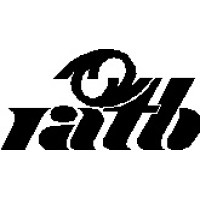
RATB
Collective Transport Company from Bucharest It operates a complex network of buses, trams and trolleybuses – in fact, all public transport except the Bucharest Metro, which is managed by Metrorex. While owned entirely by the City Council, RATB is an autonomous company. The RATB transport servi
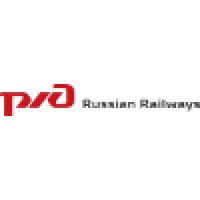
Russian Railways
Russian Railways is Russia’s leading railway company and one of the largest companies in the global transport sector. The Company is a natural monopoly and fully owned by the Russian Federation. Our primary goal is to meet the state’s rail transport and employment needs, and to provide services to p

Frequently Asked Questions
Explore insights on cybersecurity incidents, risk posture, and Rankiteo's assessments.
Swift Transportation CyberSecurity History Information
How many cyber incidents has Swift Transportation faced?
Total Incidents: According to Rankiteo, Swift Transportation has faced 0 incidents in the past.
What types of cybersecurity incidents have occurred at Swift Transportation?
Incident Types: The types of cybersecurity incidents that have occurred include .
Incident Details
What are the most common types of attacks the company has faced?
Additional Questions
What Do We Measure?
















Every week, Rankiteo analyzes billions of signals to give organizations a sharper, faster view of emerging risks. With deeper, more actionable intelligence at their fingertips, security teams can outpace threat actors, respond instantly to Zero-Day attacks, and dramatically shrink their risk exposure window.
These are some of the factors we use to calculate the overall score:
Identify exposed access points, detect misconfigured SSL certificates, and uncover vulnerabilities across the network infrastructure.
Gain visibility into the software components used within an organization to detect vulnerabilities, manage risk, and ensure supply chain security.
Monitor and manage all IT assets and their configurations to ensure accurate, real-time visibility across the company's technology environment.
Leverage real-time insights on active threats, malware campaigns, and emerging vulnerabilities to proactively defend against evolving cyberattacks.




